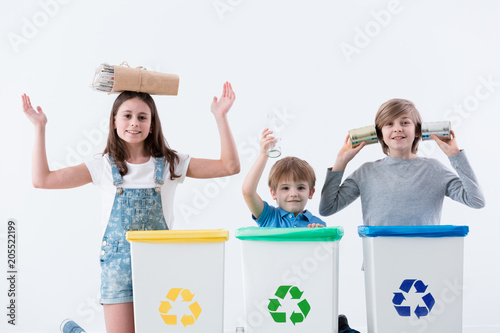Weight and Think

The goal of this good practice is to raise the awareness of pupils about waste generation during lunch time at school. The methodology of the project enables children to be co-responsible for decisions such as whether to have a whole second meal-course, or eat more bread or fruit. The teaching staff that set Weigh and Think into motion considers that the children’s first-hand experience of making their own decisions is an efficient and everlasting learning tool that will help them be critical food consumers. Weigh and Think has been created to enable children and youth to internalise a good habit that will accompany them throughout their whole lives, which they will also pass on to their families. The pilot test has been running since 2014. From the second month onwards, food waste at school canteens has been reduced by 35% and waste generation has dropped by 50%. The Weigh and Think method consists of five steps:
- separate waste into four bins (trash bin, inedible organic waste, edible organic waste, water);
- weigh every day in a systematic and precise manner;
- record data by means of an app: meals served, waste generated etc;
- think: analyse data related to the generated waste;
- propose: set targets to be achieved with the children.
The Campos Estela has estimated that waste could be reduced by 75 tonnes of food every day, given that this project could contribute to a 5% reduction of the total amount of food wasted in Catalonia. As a result, the project has engaged over 4000 pupils and over 30 Catalan schools. Since 2015 the project has been known as a finalist for the the European Week of Waste Reduction award (EWWR).
